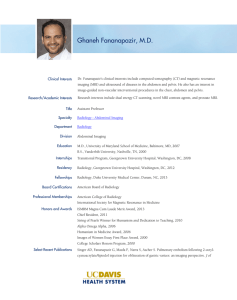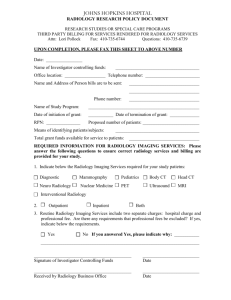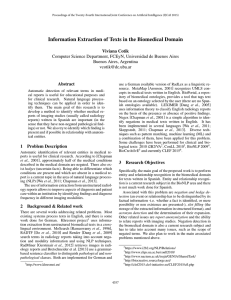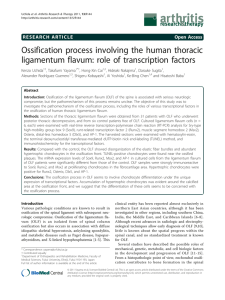Improving the diagnostic performance non-radiology trained clinicians when diagnosing Aging
advertisement
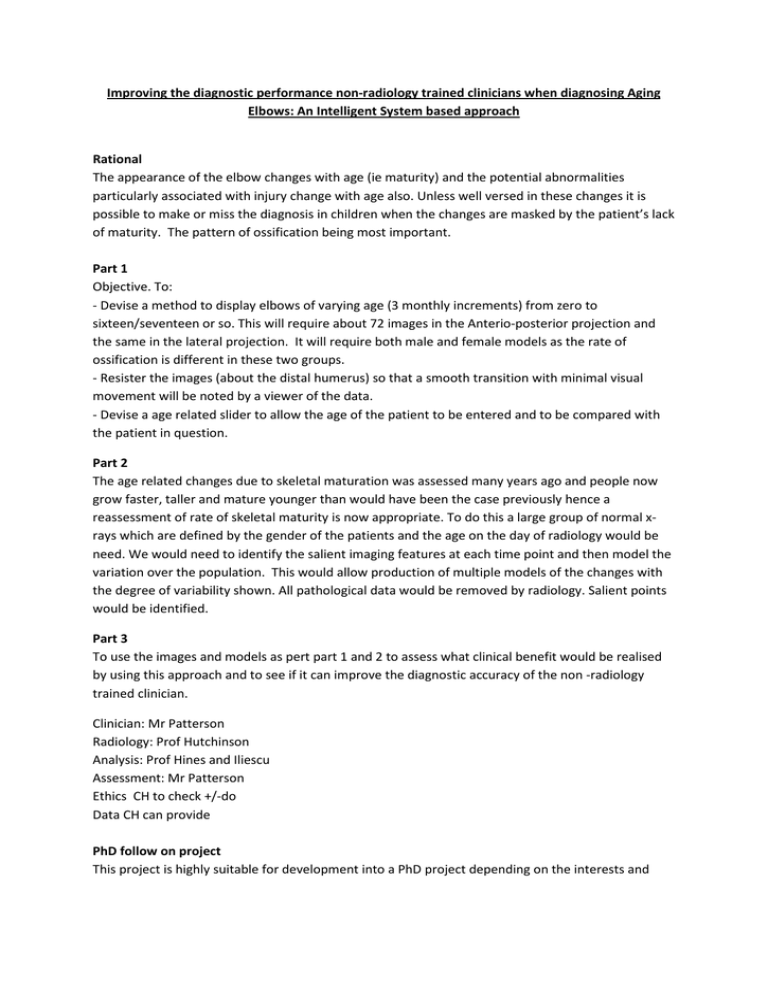
Improving the diagnostic performance non-radiology trained clinicians when diagnosing Aging Elbows: An Intelligent System based approach Rational The appearance of the elbow changes with age (ie maturity) and the potential abnormalities particularly associated with injury change with age also. Unless well versed in these changes it is possible to make or miss the diagnosis in children when the changes are masked by the patient’s lack of maturity. The pattern of ossification being most important. Part 1 Objective. To: - Devise a method to display elbows of varying age (3 monthly increments) from zero to sixteen/seventeen or so. This will require about 72 images in the Anterio-posterior projection and the same in the lateral projection. It will require both male and female models as the rate of ossification is different in these two groups. - Resister the images (about the distal humerus) so that a smooth transition with minimal visual movement will be noted by a viewer of the data. - Devise a age related slider to allow the age of the patient to be entered and to be compared with the patient in question. Part 2 The age related changes due to skeletal maturation was assessed many years ago and people now grow faster, taller and mature younger than would have been the case previously hence a reassessment of rate of skeletal maturity is now appropriate. To do this a large group of normal xrays which are defined by the gender of the patients and the age on the day of radiology would be need. We would need to identify the salient imaging features at each time point and then model the variation over the population. This would allow production of multiple models of the changes with the degree of variability shown. All pathological data would be removed by radiology. Salient points would be identified. Part 3 To use the images and models as pert part 1 and 2 to assess what clinical benefit would be realised by using this approach and to see if it can improve the diagnostic accuracy of the non -radiology trained clinician. Clinician: Mr Patterson Radiology: Prof Hutchinson Analysis: Prof Hines and Iliescu Assessment: Mr Patterson Ethics CH to check +/-do Data CH can provide PhD follow on project This project is highly suitable for development into a PhD project depending on the interests and aptitude of the student.




